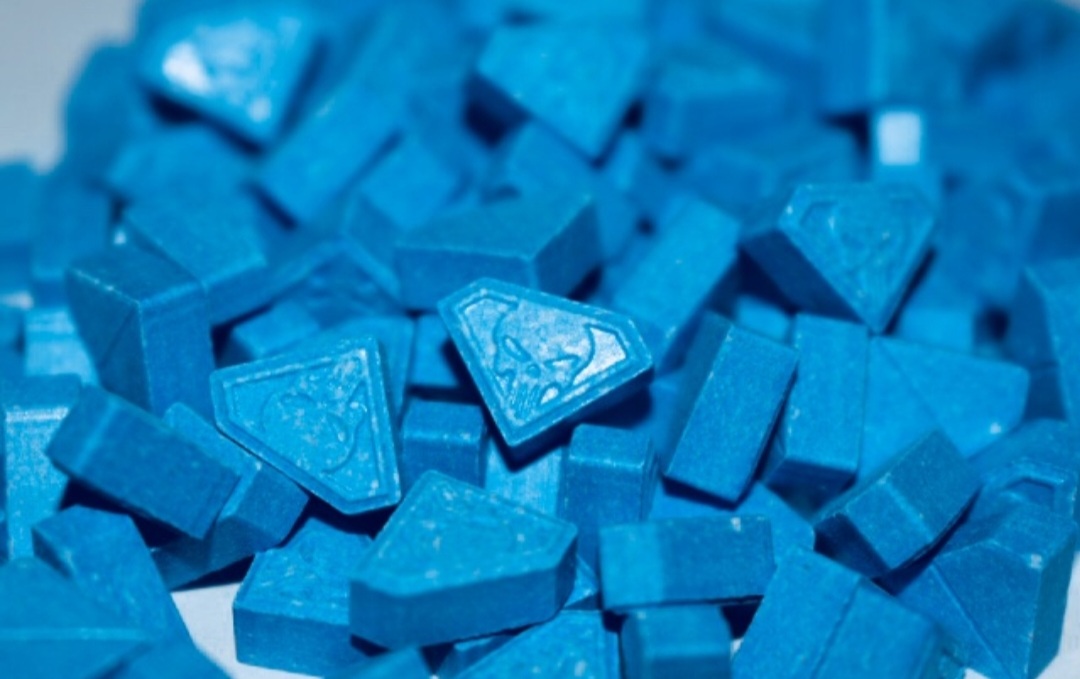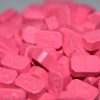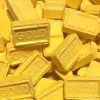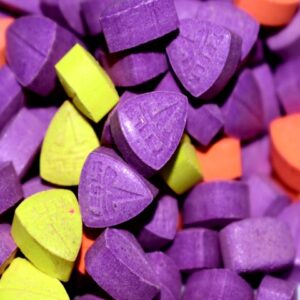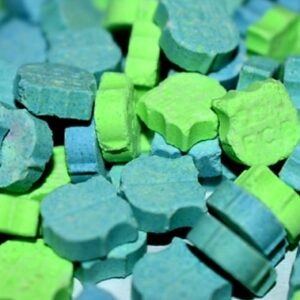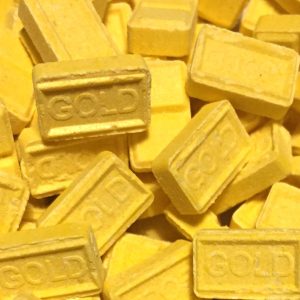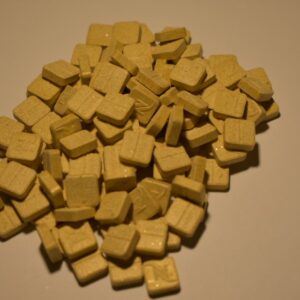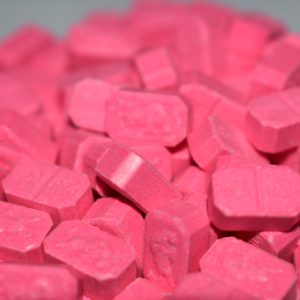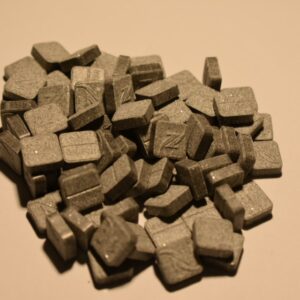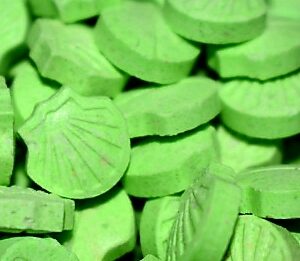Subtotal: $180.00
-
A Minimum of USD200.00 is required before checking out.
Buy AAA Blue Punishers 300mg mdma
$150.00 – $249.00Price range: $150.00 through $249.00
Buy AAA+ Blue Punishers 300mg Mdma
Buy AAA Blue Punisher 300mg, Blue Punisher 250mg+ XTC PILL (Pure Uncut Dutch MDMA) and many other XTC PILL (Pure Dutch MDMA) on Trippy Oregon Store.
The tranquil blue color and fine details of this Blue Punisher pill tell how much care the makers of these pills took to guarantee a marvelous, delightful rush-inducing warm feelings of love and joy.
These Blue Punisher pills will take you on a wonderful ride into the world of ecstasy. All pills come with a break notch on the back side.
2x 125mg MDMA guarantee a positive, easy to control experience for beginner to intermediate users.
Triangular in shape, the pills are a distinctive blue color that can be pretty common for MDMA pills.
The ecstasy pills bear the skull mask logo of the Marvel character, The Punisher.
Galaxypedia is replacing The Galaxy Wiki! The ecstasy pills (Also known as Alien Punisher) is an Al Alien ship made by the Knell.
Knell warships used to attack lone vessels.
It poses a substantial threat to undefended ships, Starbases, and inexperienced players. It is primarily black, with a few areas highlighted in neon green.
Like the Swarmer, Blue Punishers will maneuver to a range of 3K to 5K studs away from their targets and move back and forth along with that range.
Ecstasy
Buy AAA+ Blue Punishers Dutch Mdma 300mg online
MDMA QUALITY GRADE: AAA+ 250MG
COLOR: Blue
IMPRINT: Punisher
ORIGIN: XTC labs in the Netherlands
PURITY: 250mg+ Pure Uncut MDMA/pill
PRESS: 1st super solid pressed etc’
INFO AND QUALITY: All XTC pills of the Blue Punisher brand contains genuinely 250mg+ Pure
Uncut Dutch MDMA, NETTO Lab-Tested in underground Dutch Laboratories and made with perfection, 100% Satisfaction is Guaranteed with each and every pill we offer.
EFFECTS: After taking XTC your brains reacts to it and releases a good and pleasant feeling, you will feel high and buzzed up excellent for going to the club and parties!Buy Blue Punisher 250mg mdma online
Buy AAA Blue Punishers 300mg
STEALTH PACKAGING: We upgraded our stealth methods. We now use TOP NOTCH stealth. What does this mean?
What is MDMA?
3,4-methylenedioxy-methamphetamine (MDMA) is a synthetic drug that alters mood and perception (awareness of surrounding objects and conditions).
It is chemically similar to both stimulants and hallucinogens, producing feelings of increased energy, pleasure, emotional warmth, and distorted sensory and time perception.
MDMA was initially popular in the nightclub scene and at all-night dance parties (“raves”), but the drug now affects a broader range of people who more commonly call the drug Ecstasy or Molly.
How do people use MDMA?
People who use MDMA usually take it as a capsule or tablet, though some swallow it in liquid form or snort the powder.
The popular nickname Molly (slang for “molecular”) often refers to the supposedly “pure” crystalline powder form of MDMA, usually sold in capsules.
However, people who purchase powder or capsules sold as Molly often actually get other drugs such as synthetic cathinones (“bath salts”) instead (see “Added Risk of MDMA”).
Some people take MDMA in combination with other drugs such as alcohol or marijuana.
How does MDMA affect the brain?
MDMA increases the activity of three brain chemicals:
Dopamine—produces increased energy/activity and acts in the reward system to reinforce behaviors
Norepinephrine—increases heart rate and blood pressure, which are particularly risky for people with heart and blood vessel problems
Serotonin—affects mood, appetite, sleep, and other functions.
It also triggers hormones that affect sexual arousal and trust.
The release of large amounts of serotonin likely causes the emotional closeness, elevated mood, and empathy felt by those who use MDMA.
Other health effects include:
nausea
muscle cramping
involuntary teeth clenching
blurred vision
chills
sweating
MDMA’s effects last about 3 to 6 hours, although many users take a second dose as the effects of the first dose begin to fade.
Over the course of the week following moderate use of the drug, a person may experience:
irritability
impulsiveness and aggression
depression
sleep problems
anxiety
memory and attention problems
decreased appetite
decreased interest in and pleasure from sex
It’s possible that some of these effects may be due to the combined use of MDMA with other drugs, especially marijuana.
What are other health effects of MDMA?
High doses of MDMA can affect the body’s ability to regulate temperature.
This can lead to a spike in body temperature that can occasionally result in liver, kidney, or heart failure or even death.
In addition, because MDMA can promote trust and closeness, its use—especially combined with sildenafil (Viagra®)—may encourage unsafe sexual behavior. This increases people’s risk of contracting or transmitting HIV/AIDS or hepatitis.
Read more about drug use and HIV/AIDS in DrugFacts: HIV/AIDS and Drug Abuse
Read more about drug use and hepatitis.
Added Risk of MDMA
Adding to MDMA’s risks is that pills, capsules, or powders sold as Ecstasy and supposedly “pure” Molly may contain other drugs instead of or in addition to MDMA.
Much of the Molly seized by the police contains additives such as cocaine, ketamine, methamphetamine, over-the-counter cough medicine, or synthetic cathinones (“bath salts”).
These substances may be extremely dangerous if the person does not know what he or she is taking. They may also be dangerous when combined with MDMA.
People who purposely or unknowingly combine such a mixture with other substances, such as marijuana and alcohol, may be putting themselves at even higher risk for harmful health effects.
Is MDMA addictive?
Research results vary on whether MDMA is addictive.
Experiments have shown that animals will self-administer MDMA—an important indicator of a drug’s abuse potential—although to a lesser degree than some other drugs such as cocaine.
Some people report signs of addiction, including the following withdrawal symptoms:
fatigue
loss of appetite
depression
trouble concentrating
Does MDMA Have Value in Therapy?
MDMA was first used in the 1970s as an aid in psychotherapy (mental disorder treatment using “talk therapy”).
The drug did not have the support of clinical trials (studies using humans) or approval from the U.S. Food and Drug Administration (FDA).
In 1985, The U.S. Drug Enforcement Administration (DEA) labeled MDMA as an illegal drug with no recognized medicinal use.
However, some researchers remain interested in its value in psychotherapy when given to patients under carefully controlled conditions.
MDMA is currently in clinical trials as a possible treatment aid for post-traumatic stress disorder (PTSD); for anxiety in terminally ill patients; and for social anxiety in autistic adults.
Recently, the FDA gave MDMA-assisted psychotherapy for PTSD a Breakthrough Therapy designation.
More information on MDMA research can be found by contacting sponsors of various MDMA studies listed on clinicaltrials.gov.
How can people get treatment for addiction to MDMA?
There are no specific medical treatments for MDMA addiction.
Some people seeking treatment for MDMA addiction have found behavioral therapy to be helpful.
Scientists need more research to determine how effective this treatment option is for addiction to MDMA.
Points to Remember
3,4-methylenedioxy-methamphetamine (MDMA) is a synthetic drug that alters mood and perception. It is chemically similar to stimulants and hallucinogens.
MDMA is commonly called Ecstasy or Molly.
People who use MDMA typically take it as a capsule or tablet. Many people take it in combination with other drugs.
MDMA acts by increasing the activity of three brain chemicals: dopamine, norepinephrine, and serotonin.
Effects include increased energy, distorted perception, involuntary teeth clenching, dangerously high body temperature, and depression.
Many people are unaware that Ecstasy and supposedly “pure” Molly also often contain not only pure MDMA but other drugs that may be particularly dangerous when mixed with MDMA.
Research results vary on whether MDMA is addictive. Some people report signs of addiction.
Some people seeking treatment for MDMA addiction have found behavioral therapy to be helpful. There are no specific medical treatments for MDMA addiction.
Learn More
For more information about MDMA, visit:
MDMA/Ecstasy
Commonly Used Drug Chart – MDMA
| Choose Quantity | 100 Units, 150 Units, 200 Units |
|---|

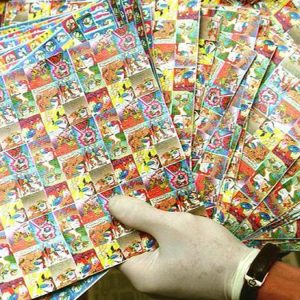 LSD Tabs - 20, 200ugs
LSD Tabs - 20, 200ugs 